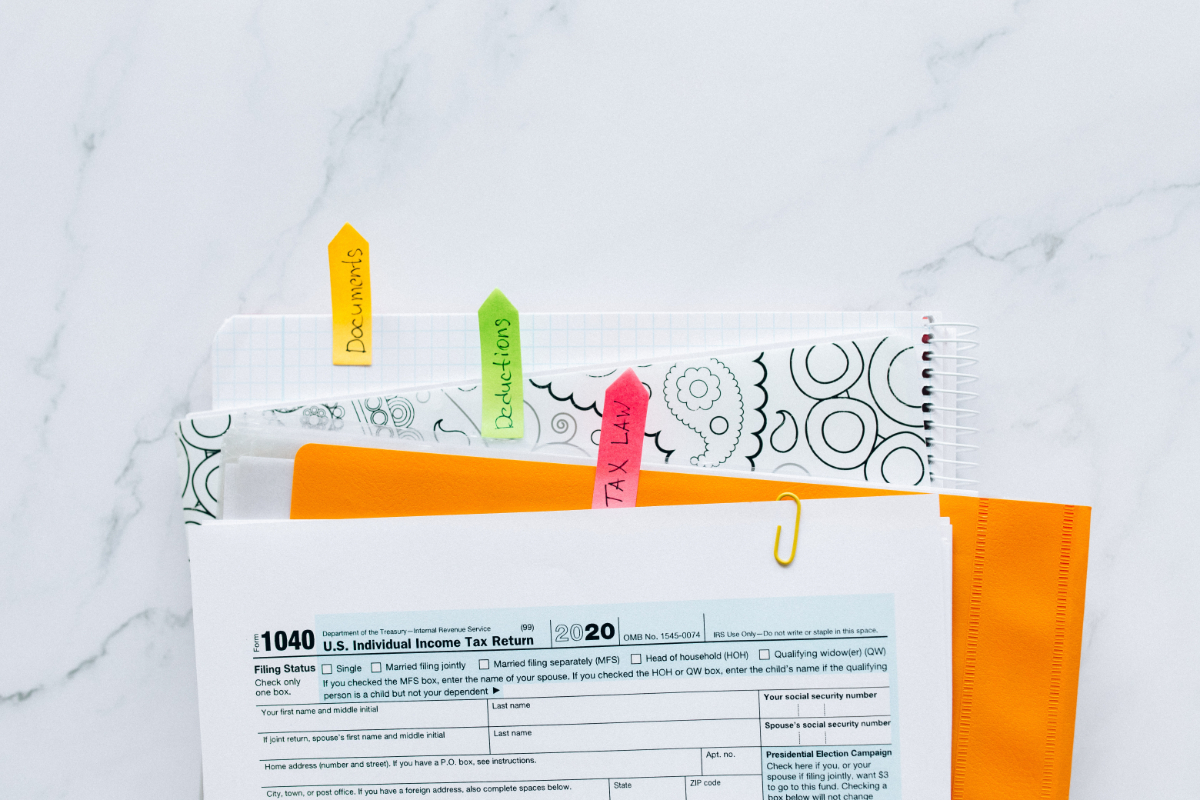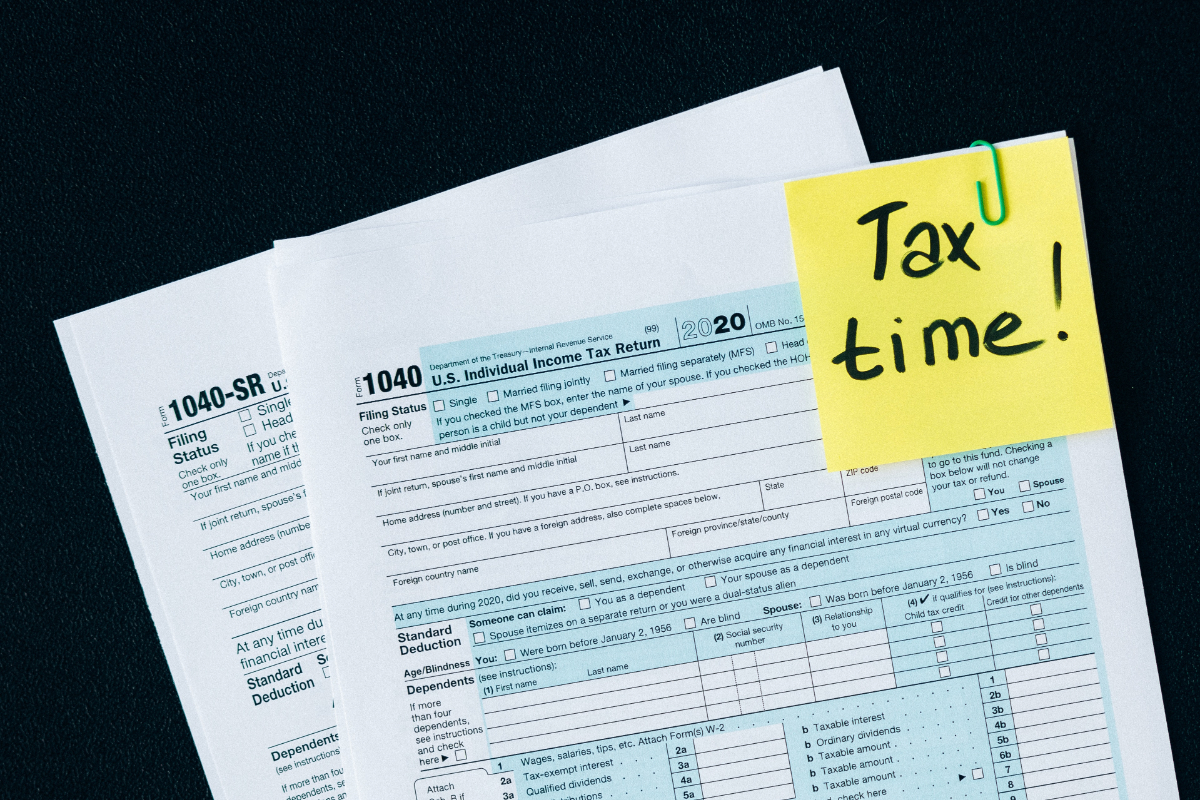What is a Healthy Money Mindset?
There are some affiliate links below, but they are all products I highly recommend. For more info, view my disclosure here.
Money is a powerful and important tool in our lives. It allows us to provide for ourselves and our families, invest in our future, and even help out those in need. But having a healthy money mindset is the key to making sure that money isn’t controlling you. So what exactly is a healthy money mindset?
Having a healthy money mindset means taking control of your finances and having an understanding of how to make the most of your financial situation. It’s not just about knowing where your money is going and why, but also understanding the implications of each spending decision you make. With this knowledge, you can take charge of your financial life and ensure that you are on track to meet any goals or needs that you have.
It’s important to note that having a healthy money mindset doesn’t mean you have to be frugal or penny-pinching; it simply means having an awareness of how much money comes in and goes out, as well as being mindful about how you manage it. In this article, we will discuss what constitutes a healthy money mindset, tips for developing one, and potential pitfalls along the way.
1. Identifying Your Financial Goals
Having a healthy money mindset starts with determining your financial goals. It’s important to understand what your short-term and long-term goals are, and how they fit into your overall life plan. This will help keep you motivated and on track when it comes to managing your finances.
An important part of having a healthy money mindset is setting realistic expectations for yourself. Don’t expect to be able to pay off all your debts overnight or make a huge return on an investment right away. Start by setting achievable goals that are within reach, like saving up for an emergency fund or paying off small amounts of debt each month.
It’s also important to remember that having a healthy money mindset isn’t only about making the right financial decisions; it’s about developing good money habits as well. That means budgeting for expenses, being mindful of where you’re spending, and learning to say no if something doesn’t fit into your budget. With patience and practice, these habits can become second nature and help you build a strong foundation for financial success in the future.
At the end of the day, having a healthy money mindset is all about taking control of your finances and creating a secure future for yourself. By setting realistic goals, developing good money habits, and staying focused on achieving those goals, you’ll be well on your way to building a bright financial future.
2. Learning To Prioritize Your Spending
A healthy money mindset is all about understanding how to prioritize your spending. Prioritizing can be done in a number of ways, but the most important thing is to make sure your money is going towards items that are most important and necessary. The first step to prioritizing your spending is to identify what your financial goals are. Once you have identified them, it’s time to figure out which expenses should come first.
When it comes to prioritizing your spending, there are a few things you should keep in mind. Firstly, focus on essential expenses like rent or mortgage payments, food and transportation costs. These are usually the most important expenses that need to be taken care of first. Secondly, make sure you’re budgeting for emergency funds so that you can cover unexpected costs without having to take out credit cards or loans. Finally, consider any future financial goals such as saving up for retirement or a down payment on a home and make sure you allocate extra money towards those goals as well.
Setting up an effective budget and tracking your spending will help you stay on top of where your money is going and ensure that it’s being used for priorities rather than frivolous purchases. Remember that creating a budget isn’t about depriving yourself of things you enjoy; it’s about being mindful with how much you spend and focusing on the things that matter most in life. So take some time each month to review your finances and make sure your spending aligns with your values and financial goals.
3. Understanding Your Debt
Understanding your debt is a key part of developing a healthy money mindset. It’s important to know how much you owe and to whom, as well as what kind of interest rate you’re paying. By understanding the terms of your loans and other obligations, you can make better decisions about budgeting and spending.
When it comes to debt, the most important thing is to pay it off in full as quickly as possible. If that isn’t feasible, focus on making payments that are at least equal to or greater than the minimum due each month. Doing so will help you avoid late fees and keep your credit score in good standing. Additionally, if you have multiple debts with different interest rates, prioritize paying off the ones with the highest rate first – this will save you money in the long run.
It’s also beneficial to stay up-to-date on changes that may affect your finances or debt repayment plans. For example, there could be new regulations or tax credits that would help reduce your balance or lower your monthly payments. Researching these opportunities regularly can help ensure that you’re taking full advantage of programs that might be available to you.
Learning about how debt works can be overwhelming but it doesn’t have to be intimidating. With some research and practice, anyone can develop a deep understanding of their financial situation which is an essential part of having a healthy money mindset overall.
4. Creating A Budget
Creating a budget is one of the most important steps in developing a healthy money mindset. It’s an effective way to keep track of your spending and ensure that you’re living within your means. Having a budget can help you focus on building up your savings, paying off debt, and even reaching larger financial goals like buying a home or starting a business.
When creating a budget, it’s important to look at all aspects of your finances. That includes figuring out what percentage of your income should go towards necessities like rent or mortgage payments, groceries, and utilities bills. You’ll also want to take into account any existing debts you have, such as student loans or credit card debt. Finally, setting aside some funds for emergencies is essential for maintaining financial security.
Once you’ve identified how much money needs to be allocated for each category, it’s crucial that you stick to it. This may involve making sacrifices in certain areas in order to build up savings or pay off debt quicker. The key is to remember why having a budget matters so much — it can help set you up for long-term financial success and give you peace of mind knowing that your future is secure.
With consistency and dedication, having a budget can become second nature over time. It’s the best way to stay on top of your finances and ensure that they remain under control no matter what life throws at you!
5. Managing Your Cash Flow
Managing your cash flow is an important component of developing a healthy money mindset. Properly managing your income and expenses can help you reach your financial goals and maintain financial stability. This involves tracking how much money is coming in, such as from your salary or investments, and how much is going out – for bills, groceries, entertainment and more.
Achieving a positive cash flow is essential for long-term financial health. This means that the amount of money coming in should exceed the amount of money going out. To do this, you’ll need to make sure that all necessary expenses are accounted for within the budget you’ve created in the previous step, and then actively monitor it on a regular basis.
It’s also important to plan ahead for unexpected costs like car repairs or medical bills so you’re not stuck with an expense you can’t afford. Having an emergency fund can provide relief when an unexpected expense arises so that it doesn’t put too much strain on your wallet. By getting into the habit of tracking income and expenses while planning ahead for unforeseen costs, you can ensure that your cash flow stays positive and that you stay on track with meeting your financial goals.
6. Practicing Financial Self-Care
When it comes to money, practicing financial self-care can be an incredibly powerful tool. Financial self-care is all about being mindful of your financial decisions and taking the time to make sure that you are making the right choices for you. It involves taking the time to reflect on your current financial situation and how you are managing it, as well as setting goals and creating strategies to reach those goals.
Financial self-care involves looking at your spending habits and making changes if needed. It also means understanding how debt works and how to pay it off without accruing more of it. Self-care is also about getting educated so that you can make informed decisions when it comes to investing and saving money. Taking the time to really understand your finances will help ensure that you are setting yourself up for a positive future financially.
Finally, practicing financial self-care also means having realistic expectations for yourself when it comes to money matters. You should not be too hard on yourself if something doesn’t work out as planned; instead, use this as an opportunity to reevaluate your approach and see what adjustments need to be made in order for you to reach your goals. With a bit of effort, patience, and dedication, anyone can develop a healthy money mindset by incorporating self-care into their financial routine.
7. Building An Emergency Fund
Building an emergency fund is an essential part of having a healthy money mindset. It’s important to have funds set aside for unexpected expenses, ensuring that you’re financially secure in unexpected situations. By having an emergency fund, you’re protecting yourself from getting into debt if something unexpected arises.
An emergency fund should be separate from your regular savings account and be used only for emergencies or unexpected costs. This could include things like medical bills, job loss, car repairs, or home repairs. Having this fund means that any time something out of the ordinary happens, you don’t have to worry about not being able to afford it.
The amount of money you need in your emergency fund depends on your lifestyle and financial situation. Ideally, it should be enough to cover at least three months of expenses such as rent or mortgage payments, food, transportation costs, and other necessities. There are many easy ways to start building your emergency fund – you can save a little bit each month from your paycheck or look into setting up an automatic transfer from your checking account into savings every month.
No matter what your financial situation is like now, having an emergency fund will help protect you in the future so that you can maintain a healthy money mindset and feel financially secure.
8. Automating Your Savings
When it comes to money, automating your savings is one of the simplest ways to achieve financial success. By setting up an automated deposit into a savings account from your paycheck or bank account, you don’t have to think about it – and you won’t be tempted to spend it. Automating your savings also helps ensure that you’re putting away some money for the future every month.
Putting aside funds for retirement should always be part of any healthy money mindset. Setting up automated deposits into a retirement account can be a great way to make sure you stay on track with your long-term financial goals. It’s important to note that not all automated deposits are created equal; consult with an expert or do some research online to decide which type of retirement account would best suit your needs and lifestyle.
Finally, automating your savings can help free up time and energy so you can focus on other aspects of managing your finances, such as budgeting, tracking expenses, and investing. With these tools in hand, you’ll be able to effectively plan for the future and build toward achieving financial security and stability.
9. Setting Long-Term Financial Goals
A healthy money mindset starts with setting long-term financial goals. This is a key part of making sure that your finances stay on track, and it’s important to take the time to think about what you want your financial future to look like. Having long-term goals gives you something to work towards, and it can help keep you motivated as you save and invest for the future.
When it comes to long-term financial goals, it’s important to have both short-term and long-term objectives. Short-term objectives are typically things that you can accomplish in a few years or less, such as saving up enough money for a down payment on a house or paying off a credit card balance. Long-term objectives are usually more ambitious goals that take at least five years or more to achieve, such as retirement savings or saving up for a big trip.
It’s also important to break down your goals into smaller steps so they’re easier to manage. For example, if your goal is to save $10,000 in five years, break this down into monthly payments of $200 per month that you need to save in order to reach your goal. Setting milestones along the way will help keep you motivated and make sure that your progress is tracked effectively towards achieving your ultimate goal.
By taking the time to set realistic and achievable long-term financial goals, you can make sure that your finances stay on track and give yourself something tangible to work towards in the future. Developing a plan of action and breaking down your goals into smaller steps is essential for success when it comes to establishing a healthy money mindset.
10. Seeking Financial Advice
Having a healthy money mindset is key to achieving financial success. It involves setting long-term goals, and also seeking financial advice. When you seek professional advice, it provides you with the knowledge and guidance to make smart decisions about your finances.
Without the right information, it can be difficult to make informed decisions about budgeting, investing, and saving for retirement. Seeking out a professional financial advisor can help you create a plan that works for your current financial situation and future goals. A financial advisor can provide insight into your options so you can choose strategies that are suitable for your own personal goals. They can also give you unbiased advice on how to manage your money and investments in order to reach those goals.
It’s important to remember that no one knows what the future holds – which is why having a financial plan is so important. Having an experienced professional who understands the markets and knows what strategies work best can help minimize any risk involved in making decisions about your money. They can also ensure that you’re taking advantage of all available opportunities when it comes to growing your wealth.
Seeking financial advice not only helps protect your finances now, but also ensures they’ll remain strong well into the future.
Frequently Asked Questions
How Can I Become Financially Literate?
Developing a healthy money mindset starts with increasing your financial literacy. Becoming financially literate is not just about understanding the “how-tos” of budgeting and investing; it’s about having the right attitude towards money. In order to become more financially literate, there are some key steps you can take.
First, start by looking at your spending habits and making sure they align with your values and goals. Tracking your expenses will help you gain insight into where your money is going and how much you’re spending in each category. Asking yourself if you really need something before making a purchase can also help you make better decisions when it comes to spending.
Next, set up a budget for yourself and stick to it. Having a clear plan for what you will do with your income can help make sure that all of your financial needs are taken care of first, then anything extra can be used for savings or investments. Make sure to include an emergency fund in case of any unexpected costs that come up so that you’re always prepared financially.
Finally, seek out additional resources related to personal finance such as books, websites, and podcasts which offer guidance on creating a budget, investing basics, and other financial topics. Reading articles or watching videos from experienced professionals can also be very beneficial in helping you understand the different aspects of managing finances effectively. With this knowledge in hand, you’ll be able to develop sound strategies for achieving financial security and long-term success.
What Are The Best Ways To Save Money?
Having a healthy money mindset starts with being financially literate. To become financially literate, you need to understand how to save money. Knowing the best ways to save money is essential for setting yourself up for financial success.
First, it’s important to set a budget and stick to it. Figure out your expenses, such as groceries or rent, and make sure they don’t exceed your income. After that, prioritize saving by putting money aside each month towards a savings account or retirement fund. This will help you avoid tapping into those funds when an unexpected expense arises.
Another way to save money is to take advantage of discounts and deals whenever possible. Check for coupons or other offers before making purchases on items like food or clothes. You can also look into buying generic brands instead of name brands when shopping for everyday products. Additionally, consider using public transportation instead of driving your own car if available in your area; this can be much more cost-effective than paying for gas and insurance every month.
Overall, having a healthy money mindset requires you to be mindful about how you manage your finances and make smart decisions when spending and saving money. Whether it’s cutting back on unnecessary expenses or investing in long-term savings goals, there are many ways you can use the money you have wisely to achieve financial stability over time.
What Are The Benefits Of Keeping A Budget?
Having a budget is an important step in developing a healthy money mindset. It’s not enough to just save money, you also need to understand where your money is going. Creating and following a budget helps you track and limit your spending, helping you achieve both short-term and long-term financial goals.
A budget can be used to prioritize expenses, allowing you to spend more on the things that are most important to you while still being mindful of your overall financial health. By tracking what you’re spending each month, it’s easier to identify areas where you can cut back or make adjustments so that you don’t end up overspending. This allows for greater control over your finances, reducing the risk of debt and other financial problems down the line.
Having a budget also provides clarity when it comes to investing or saving for retirement. Knowing how much money is coming in each month gives you an idea of how much of your income can be allocated towards investments or retirement savings without putting yourself at risk for running out of money before the end of the month. With clear goals in mind, it’s easier to make smart decisions about how much money needs to be set aside each month and where it should go.
Keeping a budget isn’t just about managing expenses, it’s also about creating financial security and stability in the long run. Knowing where your money is going now can help prevent future financial issues down the road and give peace of mind knowing that you’re taking control of your finances today.
What Strategies Can I Use To Pay Off Debt Quickly?
Having debt can be a difficult and stressful situation to be in. It’s important to take action and come up with strategies to pay it off as quickly as possible. Developing a healthy money mindset means understanding how to use the right tactics to reduce debt without compromising your overall financial health.
One of the most effective strategies for paying off debt quickly is to make more than the minimum payment each month. This will reduce your principal balance faster, leading to less interest over time, and helping you become debt-free sooner. Additionally, it is important to prioritize payments. Start by tackling debts with the highest interest rates first, then move down the list from there.
Another strategy for reducing debt is to create a budget and stick to it. A budget can help you free up extra funds that can be put towards your debt, while also making sure you have enough money set aside for necessary expenses like rent or groceries. Finally, one last technique is using balance transfer cards or taking out a personal loan if needed. Both of these options may provide lower interest rates than what you currently have on your debts, helping you pay them off faster and at a lower cost overall.
By creating a plan and following through with the right strategies, it is possible to pay off debt quickly while maintaining financial stability in the future. Keeping track of spending habits and actively monitoring progress towards becoming debt-free are key steps in developing a healthy money mindset.
What Are The Tax Implications Of Investing?
When it comes to investing, it’s important to understand the tax implications. Knowing how taxes are taken out of your investments can help you make sure you’re making the best financial decisions for your goals.
Taxes on investments can vary depending on the type of investment. For example, with stocks, you may be subject to capital gains taxes when you sell them for a profit. It’s important to be aware of these taxes before investing, so that you don’t end up owing more than expected when filing your taxes.
Investment income is also subject to federal and state income taxes in most cases. The tax rate will depend on the amount of money earned and other factors, such as whether or not you qualify for special deductions or credits. Additionally, there may be additional fees associated with certain types of investments, such as mutual funds or annuities. It’s important to research all these details thoroughly before investing your money.
Understanding the tax implications can help you make better financial decisions and ensure that you’re getting the most out of your investments while also protecting yourself from potential liabilities down the road. This knowledge can help form a strong foundation for a healthy money mindset and set you up for future success in managing your finances.
Conclusion
The journey to achieving a healthy money mindset begins with financial literacy. Once I understand the basics of managing my money, it’s time to start saving and budgeting. Setting a budget helps me track how much money I’m earning and spending, so I can stay on top of my day-to-day finances. Additionally, having a budget can help me pay off debt faster and set aside money for investing.
When it comes to investing, there are tax implications that I should consider before taking action. It’s important for me to understand what types of investments are right for me and how they will impact my taxes in the future.
By taking the time to become financially literate and create a budget, I’m on the path towards achieving a healthy money mindset. With patience, dedication and hard work, I can learn how to manage my finances now in order to build long-term wealth down the road.






